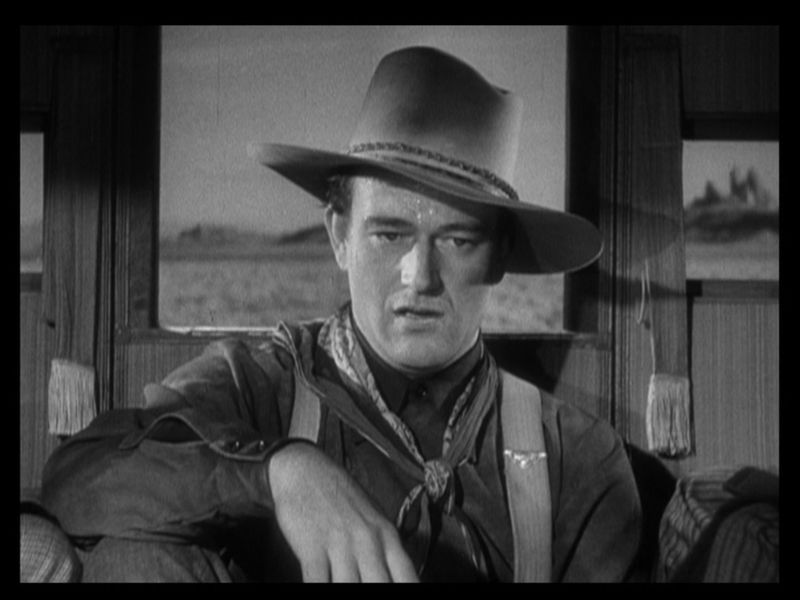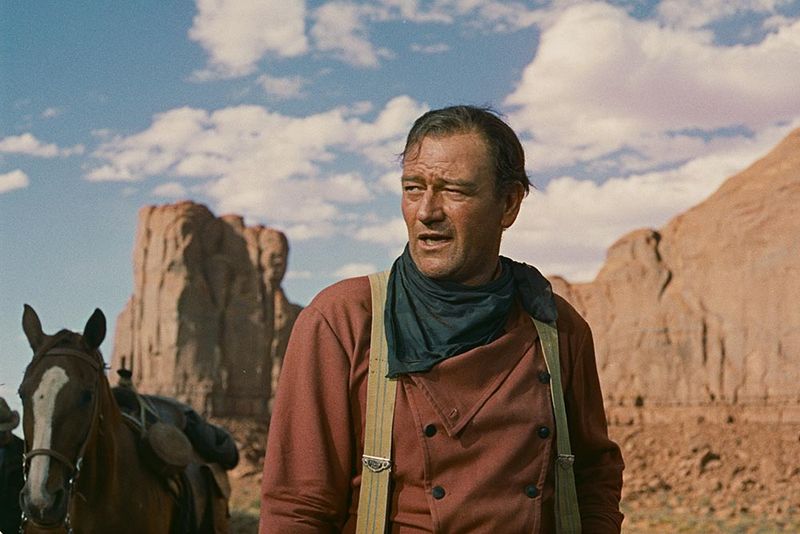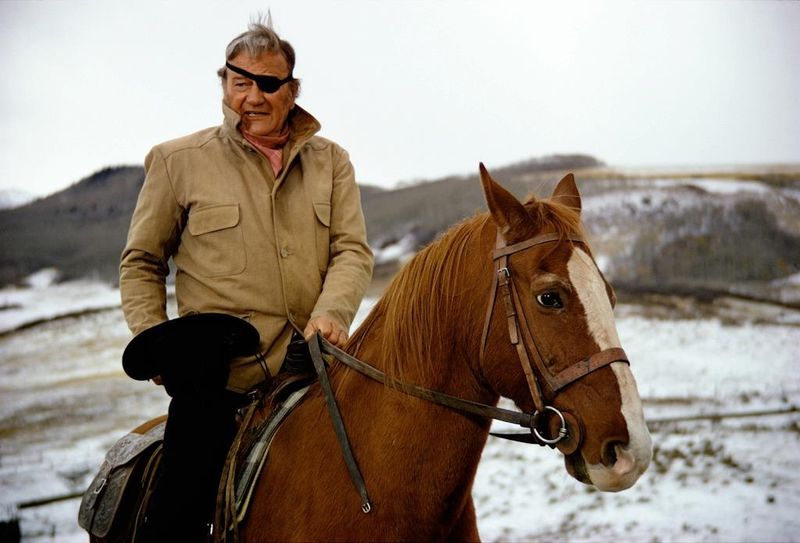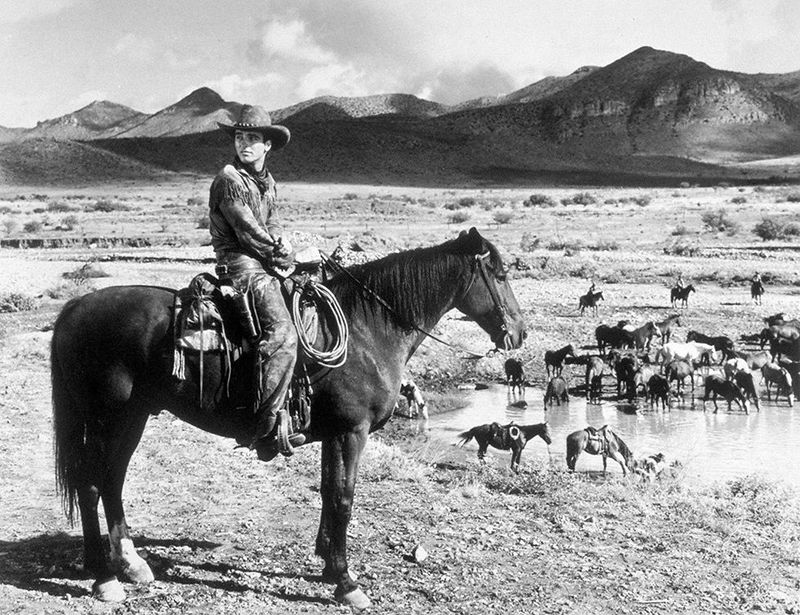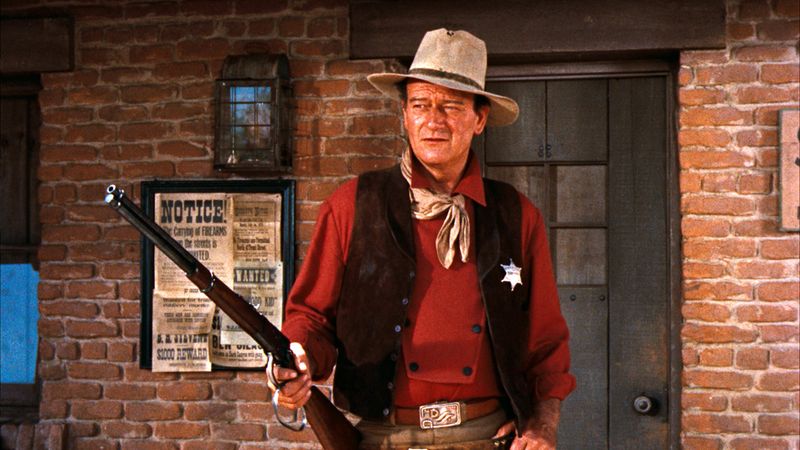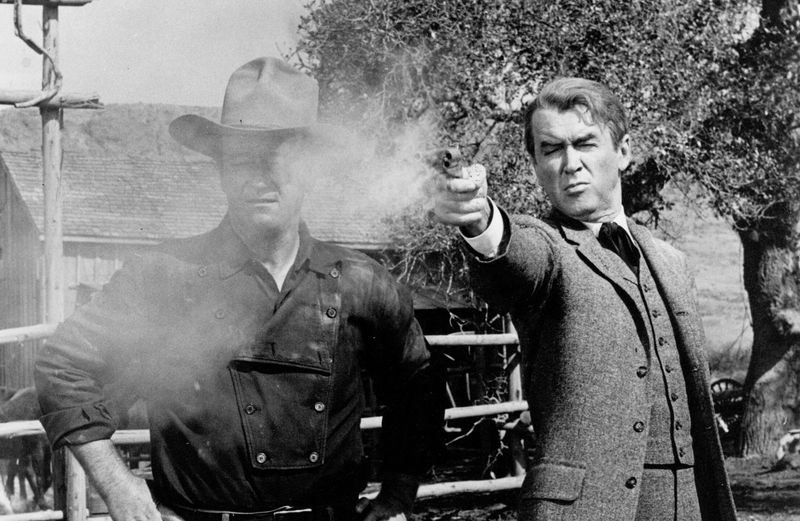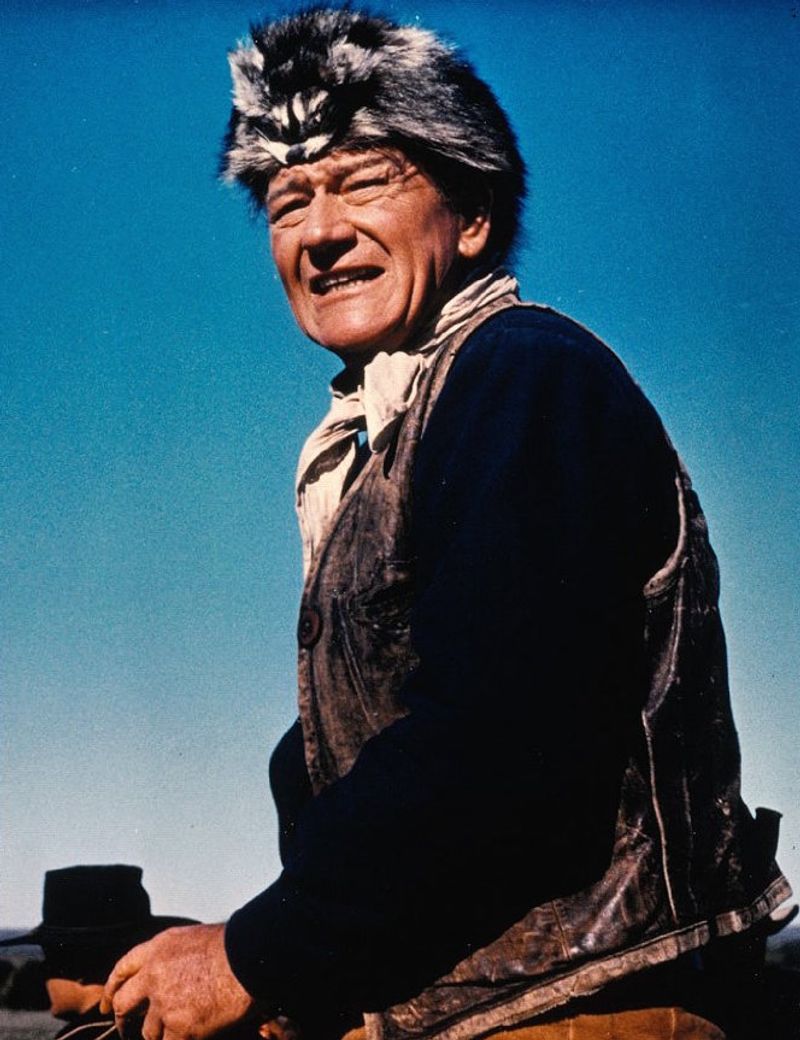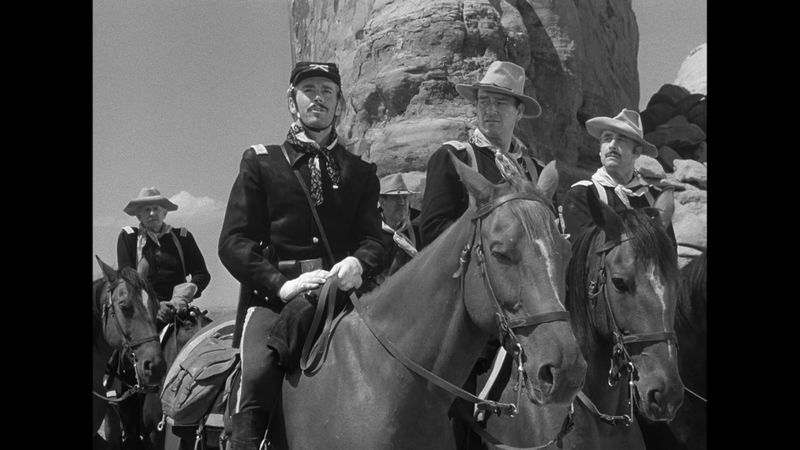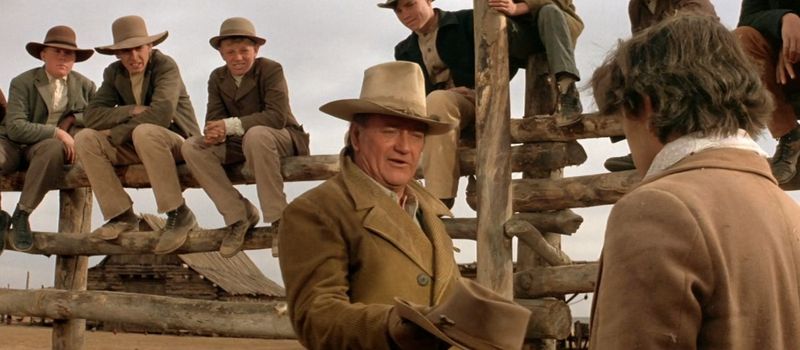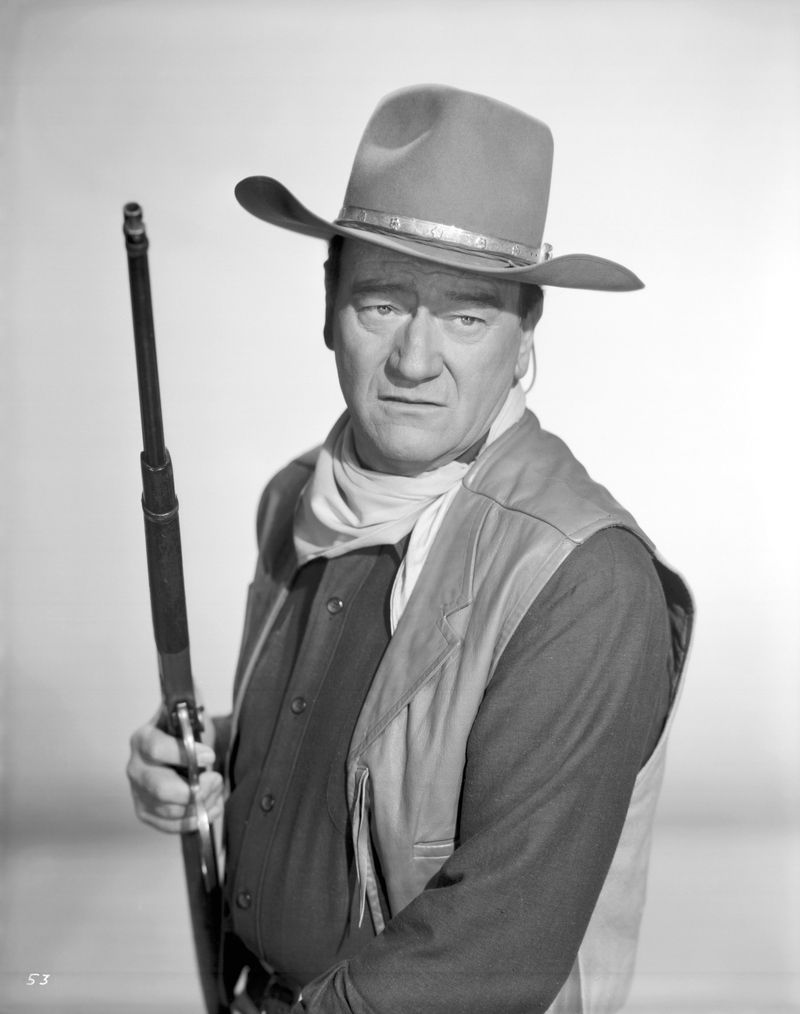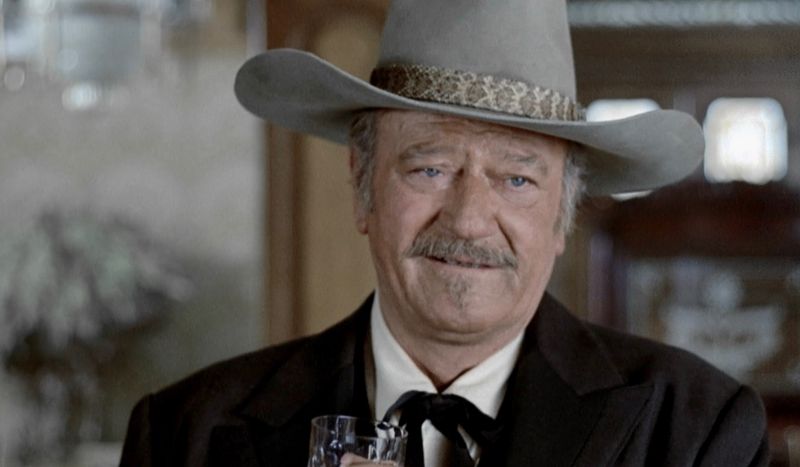John Wayne, known as ‘The Duke,’ became synonymous with the Western genre, leaving an indelible mark on the American film industry. His rugged charisma and towering presence were instrumental in crafting the archetypal Western hero, a legacy that continues to influence the genre today. This article explores eleven of Wayne’s most iconic roles, each contributing uniquely to his legendary status.
Stagecoach (1939)
In “Stagecoach,” John Wayne made his breakout role as the mysterious Ringo Kid. With an unparallelled air of rugged determination, he captured the hearts of audiences and critics alike.
Set against the vast, unforgiving desert, Wayne’s charismatic portrayal redefined heroism in cinema.
This film elevated Wayne to stardom and established a new standard for Western characters. Often celebrated for its innovative narrative and dynamic character arcs, “Stagecoach” remains a classic of the genre.
The Duke’s performance in this film marked the beginning of a legendary career in Hollywood’s Golden Age.
The Searchers (1956)
John Wayne’s portrayal of Ethan Edwards in “The Searchers” is both haunting and compelling. Known for its complex characters and rich narrative, the film showcases Wayne’s ability to delve into darker, more nuanced roles.
The story follows Edwards, a Civil War veteran, on a relentless quest to find his kidnapped niece.
With a performance that balances intensity with vulnerability, Wayne redefined his on-screen persona.
“The Searchers” is often regarded as one of the greatest Westerns of all time, reflecting the era’s tensions and Wayne’s evolution as an actor.
True Grit (1969)
In “True Grit,” John Wayne embodies the gruff and fearless U.S. Marshal, Rooster Cogburn. Known for his eye patch and unkempt appearance, Cogburn is a character full of contradictions and charm.
Wayne’s portrayal earned him an Academy Award for Best Actor, underscoring his versatility and lasting impact on the Western genre.
This film tells the story of a young girl seeking revenge, and Cogburn’s reluctant but eventual mentorship provides depth and humor.
Wayne’s performance is both heartwarming and fierce, capturing the essence of the classic Western outlaw with a twist.
Red River (1948)
“Red River” showcased John Wayne as Thomas Dunson, a hardened cattleman leading a perilous drive along the Chisholm Trail.
The film explores themes of leadership, ambition, and the father-son dynamic, with Wayne infusing his role with gravitas and authenticity.
His interactions with co-star Montgomery Clift add layers of tension and complexity, as Dunson’s unyielding nature is tested by loyalty and rebellion.
Wayne’s commanding presence and nuanced performance in “Red River” solidified his position as a formidable figure in Western cinema.
Rio Bravo (1959)
In “Rio Bravo,” John Wayne assumes the role of Sheriff John T. Chance, a steadfast and principled lawman defending his town from outlaws.
Set in a small Western town, the film is celebrated for its engaging narrative and ensemble cast, including Dean Martin and Ricky Nelson.
Wayne’s performance highlights his ability to blend strength with humor, creating a character that is both relatable and inspiring.
The film’s theme of camaraderie and justice resonates deeply, and “Rio Bravo” remains a beloved entry in Wayne’s extensive filmography.
The Man Who Shot Liberty Valance (1962)
“The Man Who Shot Liberty Valance” features John Wayne as Tom Doniphon, a rugged but honorable cowboy caught in the tension between law and legend.
The film explores the mythos of the Wild West, with Wayne’s character embodying the self-reliant spirit of the frontier.
Paired with James Stewart, Wayne’s portrayal offers a nuanced exploration of heroism, truth, and legacy.
This film is a thought-provoking examination of the blurred lines between fact and fiction in Western folklore, with Wayne’s performance adding depth and complexity.
The Alamo (1960)
In “The Alamo,” John Wayne not only starred as famed frontiersman Davy Crockett but also directed the film, showcasing his multifaceted talents.
Set during the pivotal Battle of the Alamo, the film is a dramatization of this historic event, with Wayne’s Crockett standing as a symbol of courage and sacrifice.
His portrayal captures the essence of American patriotism and frontier spirit, adding a layer of authenticity and passion to the narrative.
“The Alamo” remains a testament to Wayne’s dedication both in front of and behind the camera.
Fort Apache (1948)
In “Fort Apache,” John Wayne takes on the role of Captain Kirby York, a seasoned cavalry officer stationed at a remote outpost.
The film, directed by John Ford, is part of the “Cavalry Trilogy” and examines themes of duty, honor, and leadership.
Wayne’s portrayal of York is marked by a blend of authority and empathy, as he navigates the challenges of military life and conflicted relationships.
“Fort Apache” is a compelling exploration of the complexities of command and the human cost of conflict, with Wayne delivering a commanding performance.
The Cowboys (1972)
“The Cowboys” sees John Wayne as Wil Andersen, an aging rancher who hires schoolboys to help with a cattle drive.
This film diverges from traditional Westerns by focusing on mentorship and growth, as Andersen imparts wisdom and toughness to his young crew.
Wayne’s performance is both rugged and tender, capturing the essence of a man facing the twilight of his career while instilling values in the next generation.
The film’s themes of resilience and coming-of-age are handled with skill, making “The Cowboys” a memorable entry in Wayne’s filmography.
El Dorado (1966)
In “El Dorado,” John Wayne portrays Cole Thornton, a seasoned gunfighter drawn into a land dispute.
The film reunites Wayne with director Howard Hawks and co-star Robert Mitchum, embodying themes of loyalty, friendship, and moral dilemmas.
Wayne’s character is imbued with a charisma and wit that highlight his enduring appeal.
With its engaging plot and dynamic character interactions, “El Dorado” stands as a testament to Wayne’s ability to adapt and thrive in various Western narratives, delivering a performance rich with nuance and charm.
The Shootist (1976)
John Wayne’s final film, “The Shootist,” features him as J.B. Books, an aging gunfighter facing his last days.
This poignant story mirrors Wayne’s own life, adding a layer of depth and authenticity to his performance.
Books’ journey of redemption and reflection is handled with grace and subtlety, showcasing Wayne’s ability to convey vulnerability and strength.
“The Shootist” is a fitting conclusion to Wayne’s illustrious career, offering a contemplative look at the Western genre and the passage of time.
